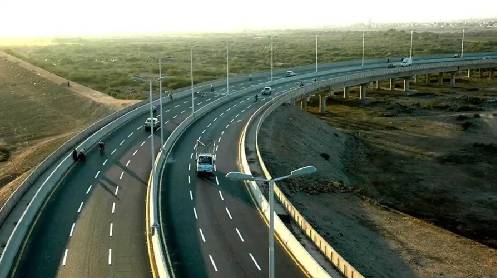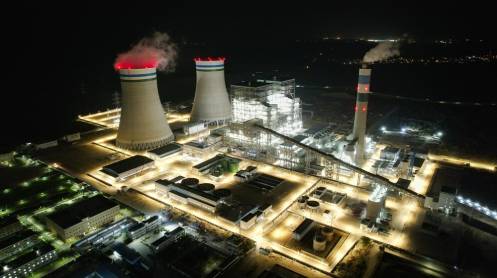Karachi: In a bold move that has sparked an outcry among rights activists and environmentalists, the Sindh Government has inaugurated the partially constructed Malir Expressway, igniting fears of severe ecological damage and community displacement.
Prominent figures in climate advocacy—including Hafeez Baloch from the Sindh Indigenous Rights Alliance, Yasir Hussain, Director of the Climate Action Center, and Advocate Abeera Ashfaq—have voiced their serious apprehensions regarding the project. They argue that for over four years, the expressway’s impact on the fragile Malir Riverbed and the surrounding communities has been downplayed, despite rising environmental concerns.
In a surprising twist, just days prior to the inauguration, the Sindh Government rebranded the expressway segment to Shaheed Zulfiqar Ali Bhutto Expressway and imposed elitist restrictions on motorcycles and rickshaws. This segment of the road, constructed directly on the riverbed, lacks proper hydrological surveys and ignores the devastating impact of unprecedented flooding during the rains of 2020 and 2022.
With relentless sand mining activities taking place under the watch of a largely ineffective Sindh Environmental Protection Authority, activists are alarmed by the ongoing destruction of green spaces, especially as Sindh faces increasing heatwaves.
Local communities, including those from Haji Ghulam Mohammed Goth, are being pressured to accept below-market compensation for their land, further threatening their homes as the expressway aims to link affluent areas like Defence Housing Authority with Bahria Town Karachi. Besides, other villages, as well as the historic Sayad Hashmi Reference (Baloch) Library, are also at risk, despite its temporary protection under a stay order from the Sindh High Court.
Critics claim that the Sindh Government has kept the Land Acquisition and Resettlement Plan (LARP) survey and final project agreements secret, raising questions about transparency. As urban flooding threatens to worsen due to the expressway’s construction, citizens of Sindh are uniting in their rejection of this elitist endeavour that jeopardises vital environmental and community resources.
Will the Sindh Government heed the concerns of its citizens, or will the Malir Expressway become a symbol of environmental neglect? The future of Sindh’s communities and their environment hangs in the balance.
Rights Activists say Malir Expressway seriously threatens Karachi’s environmental safety





